Meet Maintainers Fellow Mathew Lubari: Journey to Repair Culture
– by Mathew Lubari
My name is Mathew Lubari, Co-Founder & Executive Director of Community Creativity for Development (CC4D), a South Sudanese self-driven and thought repairer and activist, maker, mentor and advocate for Open-Technology, Inclusion and Diversity. At the age of 12, I watched my Dad (Alison) repair his radios and wristwatch (unfortunately, my Dad could not repair most his faulty/broken items due to lack of knowledge and skills). I got inspired and pursued a career in ICT to help teach people how to repair, care and maintain their electronic items.
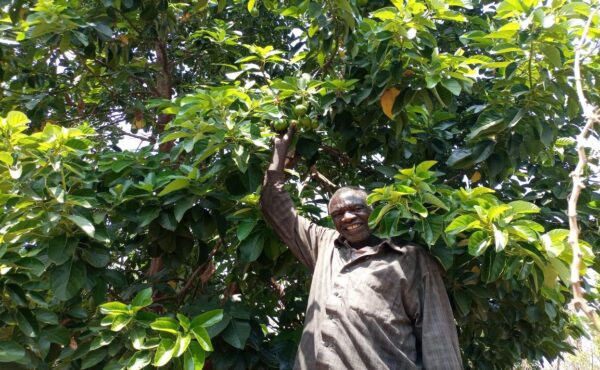
In 2016, I fled my country with a zip lock of repair tools (screwdriver, cutter and a toothbrush) and co-founded CC4D in 2019, providing repair and maintenance services to the Refugees in Rhino Camp, Uganda. I never knew repair protects the planet from global warming until 2021 when I joined the Restarters community, #ASKnet community (Access to Skills Knowledge and Network), Global Innovation Gathering (GIG), Africa Open Science Hardware (AfricaOSH), Africa Makers Space Network, and the Global Open Science Hardware (GOSH) and was invited in 2022 as a Keynote speaker at #Fixfest2022 in Brussels.
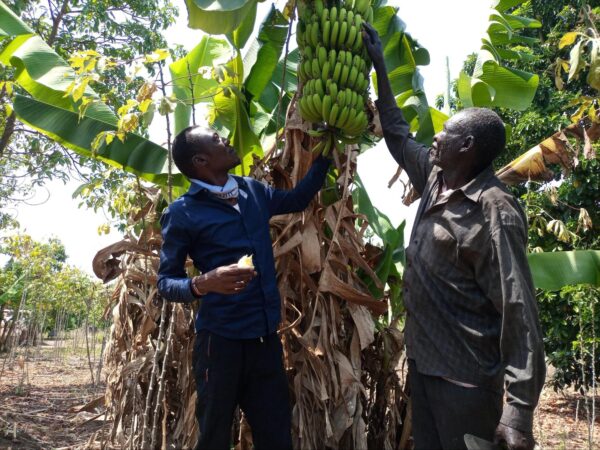
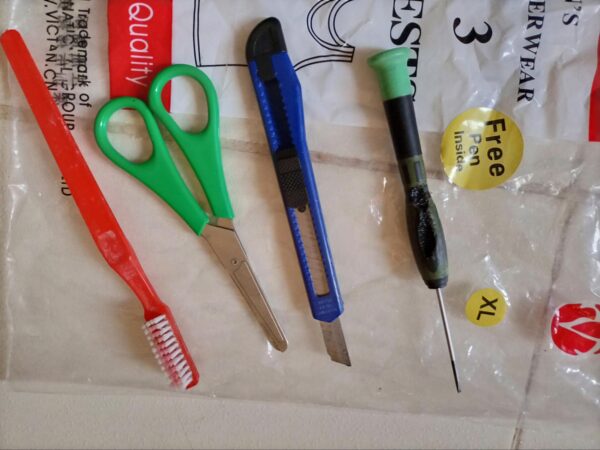
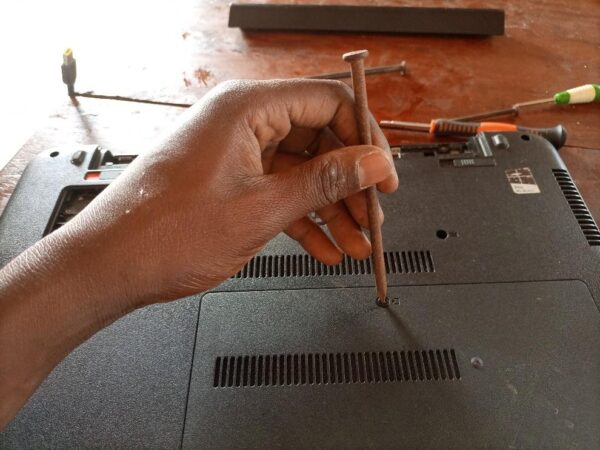
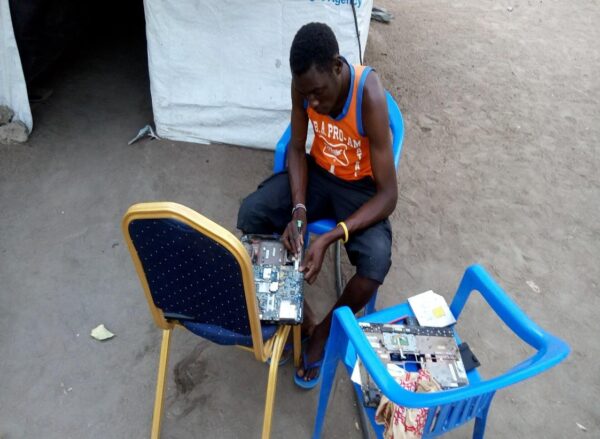
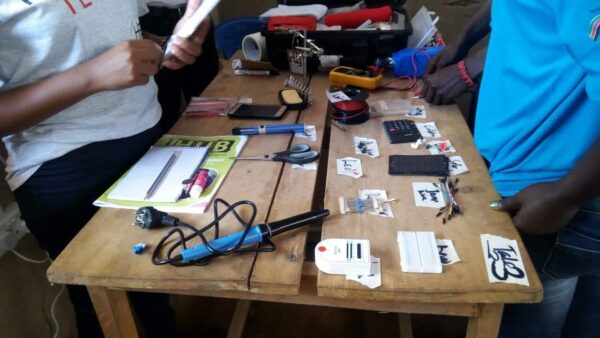
Uganda hosts over 1.5 million refugees, making it the largest refugee-hosting nation in Africa. Rhino refugee settlement currently hosts 139.781 refugees from (Uganda Refugee Statistics, July 2022) from South Sudan, Sudan, Democratic Republic of Congo, Rwanda, Burundi, Central Africa Republic and Kenya who fled their countries due to political instabilities.
In 2016, UNHCR and other Humanitarian Partners distributed to the refugees food and non-food items including electronic items such as solar lamps, mobile phones and radios have been increasingly owned by refugees as primary sources of communication, access to information and lighting at night. However, as devices break down, the demand for the repair and maintenance of those devices is high. To date, there is just one project organised by IOM, focusing on waste related to solar panels. Still, there are no partners organizing repair cafes to raise awareness on e-waste and repair a wide range of different electronic devices. A report from GPA and UNITAR (Electronic Waste (E-waste) Management for Off-grid Solar Solutions in Displacement Settings, January, 2022) highlights that E-waste management practices in displacement settings are not present or sufficient in eliminating or reducing health and environmental hazards.
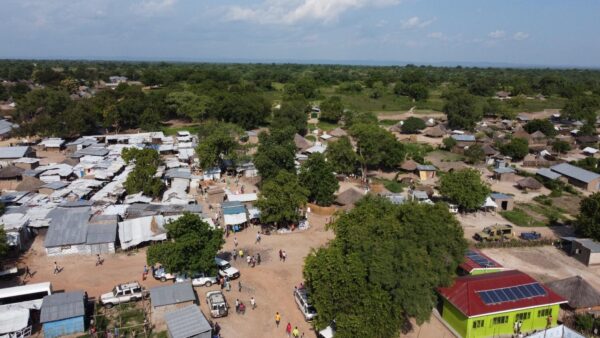
In February 2021, CC4D piloted the repair café project in one location (Eden village) through its small funds from member subscriptions and support from friends (Arthur Donaldson, Muhammad Radwan and partners such as Restart Project, Repair Café Malmo, iFixit, The Workshop floor, r0g_agency a German based organization with funding from the BMZ through their project titled Access to Skills Knowledge and Network (#ASKnet), that attracted many youths with interest to learn various skills on repair of electronics, electrical, mechanical and textile items. The project was demanding and the communities kept pursuing CC4D to source for further funding from local and international donors in order to scale up the program for the benefit of the communities, not only in Eden village but also other zones within the settlement, since the project helped reduce the distances that previously had to be traveled to fix devices. Living in Rhino Camp Refugee Settlement, Repair cafés have bonded us as a group of young people and given us a sense of direction.
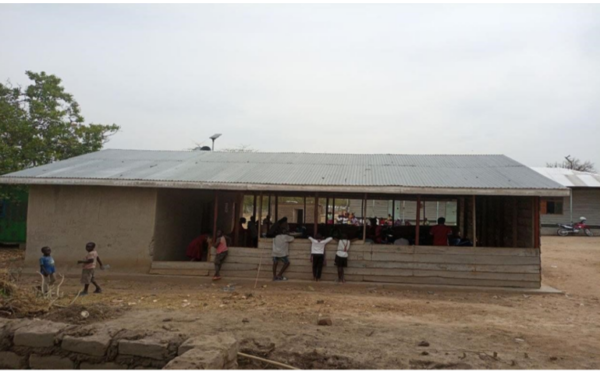

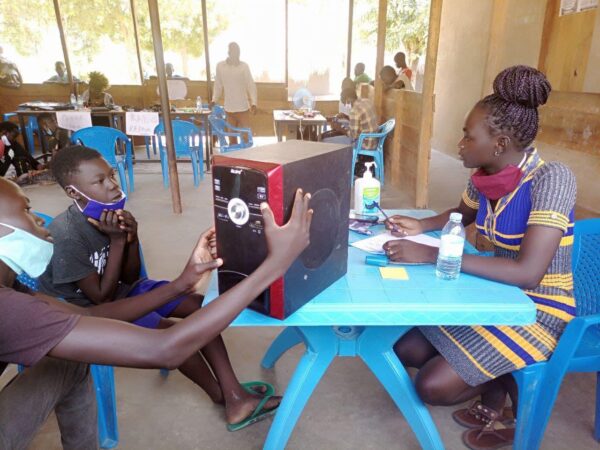
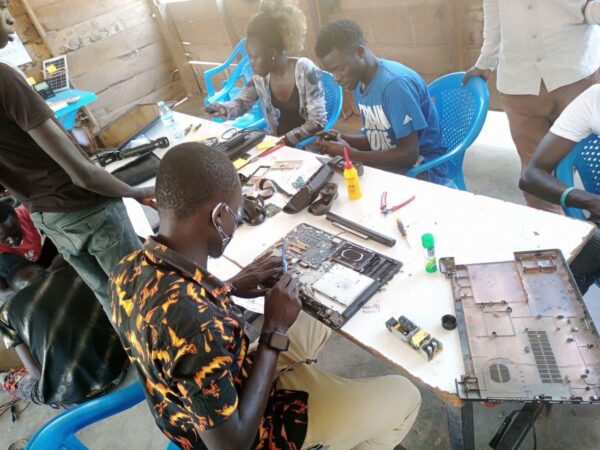
Community Creativity for Development (CC4D) is a Refugee Youth-led community-based organization aimed at connecting communities while also finding solutions to protect the environment from global warming with its headquarter in Eden II village, Rhino Camp Uganda. The organization have also established a community repair café center (Bright Makerspace) in Eden village, Rhino Camp refugee settlement Uganda a one stop center, a platform providing repair services, skills training, learning, mentorship and e-waste management where community members bring on daily basis their broken/faulty and damaged items/belonging for fixing by local experts (volunteers) in repair of electronics, electrical, mechanical and textile products. CC4D has also expanded its operation to Yei, South Sudan with the same mission and is looking forward to replicate Bright Makerspace.
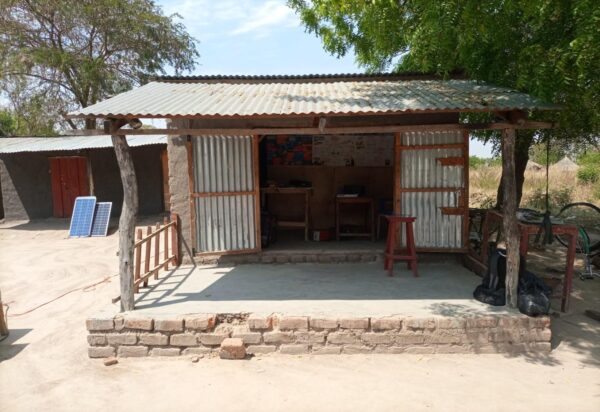
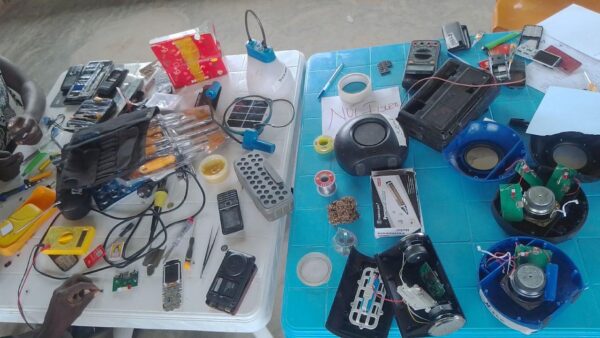
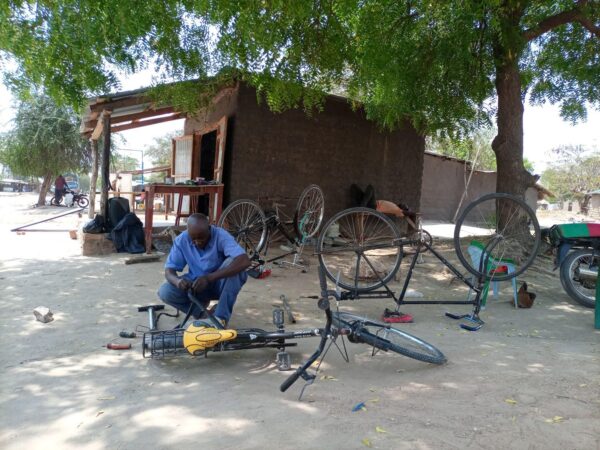
CC4D Bright Makerspace also supports refugees and host communities with access to repair tools, information and technical support while providing continuous awareness on repair, reuse, maintenance and management of e-waste including collection, reuse and upcycling.
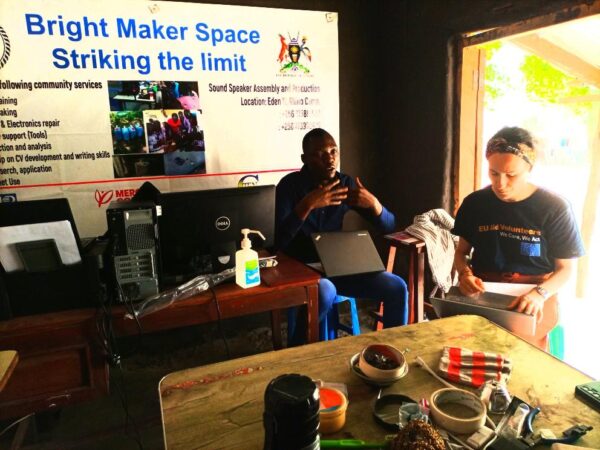
Above all, CC4D conduct repair café events that encourage people to work together and share knowledge and skills, which helps to bring people together and work on building a more coherent and peaceful community.
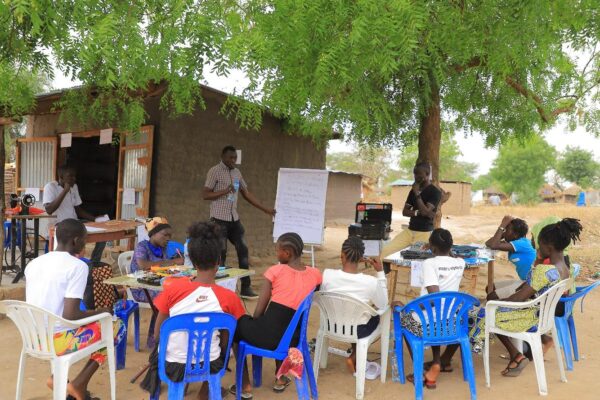
Being a fellow in The Maintainers fellowship program is relevant to my professional and organization work at CC4D. The program gives me the opportunity to explore, learn and network but also grow CC4D’s network in order to gain exposure and possibilities of new synergies, while the experience from the fellowship will help improve my understanding of maintenance concepts and enhance my skills in sustainability. It will also provide an opportunity to strengthen my skills and engage with a dynamic network of individuals to grow my career and inspire fellow youths.
My discussions will focus on the essence of Repair culture in Displacement settings in Uganda, Rhino Camp in particular. I will be talking about the issues the community of Rhino Camp has ran into because of a lack of resources and expertise, as well as insights I have gathered from organising community repair workshops. For example, the impact of repair and the lack of spare parts, tools and equipments, poor infrastructure and lack of finances. Also, I will share observations on gender inclusion in repair, care and maintenance of everyday items including barriers such as lack of mentorship, language, culture, lack of baby-sitting places and distance as well as the number of individuals who have assisted our work in various ways.
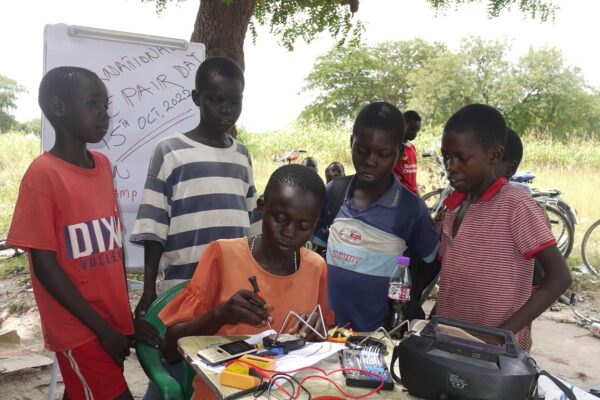
While repair and maintenance is relevant from the perspective of circular economy in developed societies, in the case of displacement settings or underdeveloped societies it is a form of survival or at least a means of ensuring the status quo. My aim is to create awareness on the value and importance of repair, care and maintenance while contributing to the circular economy aspects of elimination of waste and pollution and the circulation of products and materials through repairing, refurbishing, reusing, sharing, recovering and recycling existing materials and products for as long as possible.
This is because the world’s population is growing and with it the demand for raw materials. For example, in Africa include; gold, oil and gas, iron ore, chromium, platinum, cobalt, diamonds, uranium, timber and logs. However, the supply of crucial raw materials is limited and limited supplies also mean some countries are dependent on other countries for their raw materials. In addition, extracting and using raw materials has a major impact on the environment. It also increases energy consumption and carbon emissions. However, smarter use of raw materials can lower carbon emissions. Measures such as waste prevention, eco-design and re-use could save companies money while also reducing total annual greenhouse gas emissions since a circular economy promotes bio-cycle and techno-cycle products and materials circulation.
Therefore, moving towards a more circular economy will deliver benefits such as reducing pressure on the environment, improving the security of the supply of raw materials, saving money, increasing competitiveness in production, stimulating innovation, boosting economic growth and creating greener jobs.
Finally, I would also like to congratulate The Maintainers organization for having the mindset to create and bring like-minded people with different backgrounds together from across the world who do not ordinarily come together to share insights and experiences on maintenance of everyday items, people and the planet.